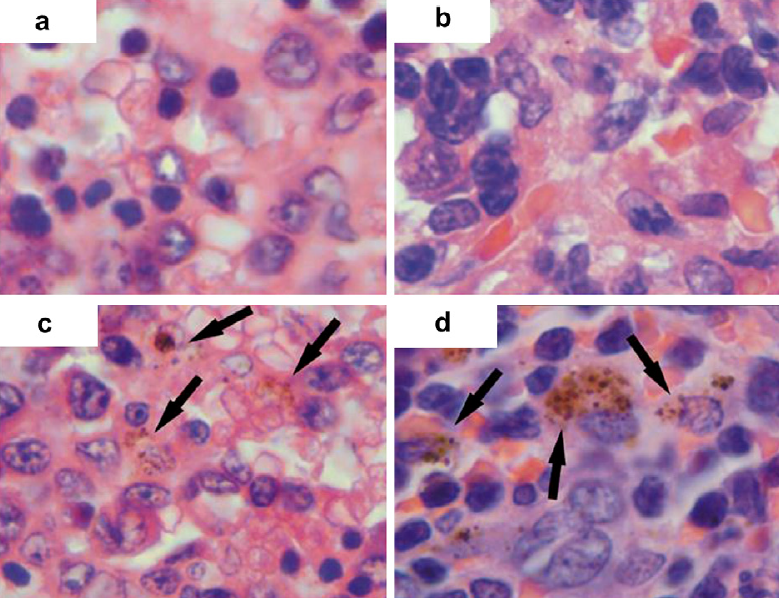Fullerene C60 administration doubles rat lifespan with no toxicity
April 17, 2012

Optical microscopy of spleen sections: (a) oral and (b) i.p. treatment with olive oil only; (c) oral and (d) i.p. treatment with C60-olive oil. The arrows indicate C60 crystals-containing macrophages (brown). (Credit: T. Baati et al./Biomaterials)
Researchers at the University of Paris and colleagues fed the molecule fullerene (C60 or “buckyballs”) dissolved in olive oil to rats and found it almost doubles their lifespan, with no chronic toxicity.
The results suggest that the effect of C60, an antioxidant, on lifespan is mainly due to the attenuation of age-associated increases in oxidative stress, according to the researchers.
Pharmacokinetic studies show that dissolved C60 is absorbed by the gastro-intestinal tract and eliminated in a few tens of hours.
“These results of importance in the fields of medicine and toxicology should open the way for the many possible biomedical applications of C60 including cancer therapy, neurodegenerative disorders, and aging,” the researcher suggest.
“C60 can be administered orally, and as it is now produced in tons, it is no longer necessary to resort to its water-soluble derivatives, which are difficult to purify and, in contrast to pristine C60, may be toxic.
Since 1993, countless studies showed that fullerene (C60) and derivatives exhibit paramount potentialities in several fields of biology and medicine, mainly including specific DNA cleavage, imaging, UV and radioprotection, antiviral, antioxidant, and anti-amyloid activities, allergic response and angiogenesis inhibitions, immune stimulating and antitumor effects, enhancing effect on neurite outgrowth, gene delivery, and even hair-growing activity, a summary in the Biomaterials paper stated.
Ref.: Baati T, et al., The prolongation of the lifespan of rats by repeated oral administration of [60]fullerene, Biomaterials (2012), doi:10.1016/j.biomaterials.2012.03.036